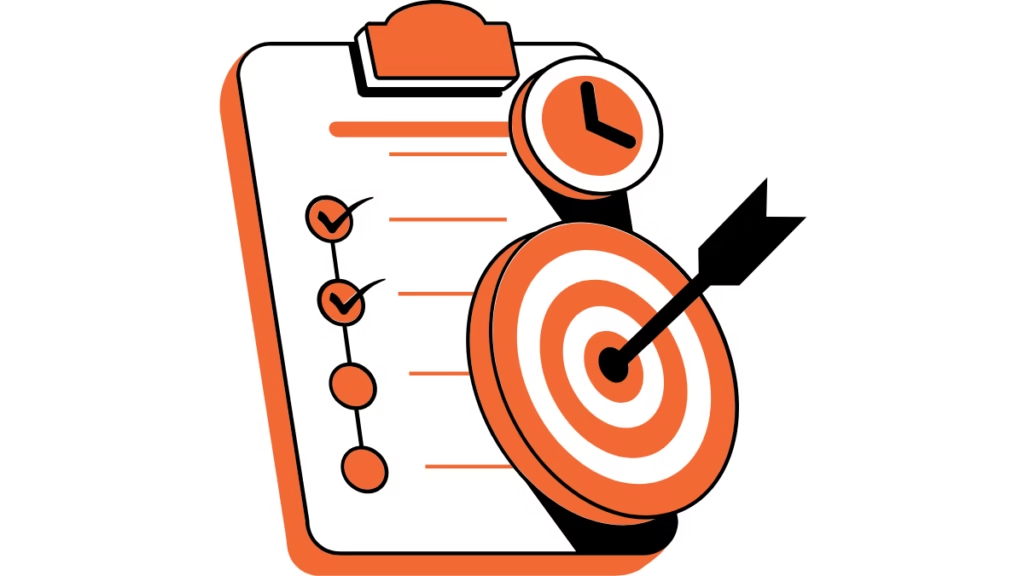How to Build a Disciplined Mindset for Productivity
Discipline isn’t a gift — it’s a system. If you’re searching for how to build a disciplined mindset, the answer starts with structure, identity, and intentional habit building. High performers don’t rely on willpower. They develop mental discipline by creating environments and routines that minimize friction and amplify focus. This post breaks down how to strengthen your mindset for success, stay consistent when motivation fades, and design a framework that supports long-term productivity.
What Is a Disciplined Mindset?
Discipline vs Motivation
Motivation is a mood. Discipline is a mechanism. Motivation fades when the moment loses its novelty. Discipline endures because it isn’t a feeling—it’s a decision reinforced by systems.
When you operate on motivation, your output is inconsistent. When you operate on discipline, it becomes predictable. That’s why the most productive individuals don’t wait to feel inspired—they create conditions where action is inevitable.
Why Mental Structure Beats Willpower
When thinking about how to build a disciplined mindset people often turn to using willpower. The problem with that is willpower is a limited resource. It’s easily depleted by decision fatigue, emotional friction, or context switching. A disciplined mindset removes the need for willpower. It relies instead on mental structure: predefined behaviors, routines, and principles that reduce internal negotiation.
In this way, discipline isn’t about resistance. It’s about alignment. When your systems are strong, they remove the need to decide. You already know what to do, when to do it, and how. This removes friction and builds trust in yourself. Over time, that trust becomes your baseline—and suddenly, discipline feels less like a struggle and more like a rhythm. That’s the shift from force to flow.


Why Discipline Is Essential for Productivity
Reducing Friction and Decision Fatigue
Every time you hesitate, you burn mental fuel. A disciplined mindset eliminates that friction by creating default paths. When your actions are systemized, there is less room for doubt, delay, or distraction.
This frees up cognitive bandwidth for meaningful work—the deep, focused kind that actually moves your life forward.
The Role of Identity in Daily Discipline
You don’t rise to the level of your goals. You fall to the level of your systems—and your systems are shaped by identity.
A disciplined mindset starts with becoming the kind of person who doesn’t skip. Who doesn’t negotiate. Who finishes what they start. This is identity-based habit formation: the belief that every action casts a vote for the person you’re becoming.
If you want to be disciplined consistently, stop chasing productivity hacks and start reinforcing the identity that executes, regardless of mood.
How to Build a Disciplined Mindset (Step-by-Step)
Anchor Your Identity First
If you’re wondering how to build a disciplined mindset the first step is aligning your action with who you want to be. Begin by writing down the traits of your “future self”—the disciplined version of you. Then, audit which daily actions either reinforce or reject that identity.
Your goal isn’t to be perfect. It’s to be consistent with the identity you’re becoming. That’s how mental discipline compounds.
Think of identity as the soil—and discipline as the seed. Without the right environment, even the best habits won’t take root. But when your self-image and actions align, consistency becomes natural. Instead of pushing yourself to act, you begin to act in accordance with who you believe you are. And that belief, reinforced daily, becomes unshakable. Identity-based discipline takes time to develop — it doesn’t happen overnight. If you’re building consistency, it helps to understand the actual science behind habit timelines. This guide breaks down how long it really takes to build a new habit.


Create Micro Commitments That Compound
Start small. One push-up. Five minutes of reading. A single focused work sprint. Micro commitments remove friction and make execution effortless. Over time, they stack into habits that no longer feel optional. Discipline isn’t earned in grand gestures. It’s built in the quiet moments where you choose consistency over comfort—even when your habit feels broken.
Use Systems, Not Emotion
Emotion is a poor manager. Instead, use systems to guide behavior. This includes:
- Time blocking: Assign blocks of time to your priorities
- Habit stacking: Link new actions to existing routines
- Habit Loops: Use the crew, craving, reward method to make habits stick.
- Environment design: Make the right choice easy, and the wrong one inconvenient
When your environment supports your identity, discipline becomes the default.
Add Friction to Distractions
Discipline doesn’t just mean doing the right thing. It also means reducing the appeal of the wrong thing.
Make distractions difficult to access:
- Log out of social media
- Use website blockers
- Keep your phone in another room during deep work
By increasing the cost of distraction, you reduce the likelihood of giving in. If you find yourself undoing your own progress, you may be stuck in a loop of self-sabotage. If that’s the case it’s important that you learn how to stop self-sabotaging habits.


Tools and Habits That Reinforce Mental Discipline
Daily Reviews and Morning Anchors
Your day is won or lost before it begins. Use the first 30–90 minutes for what matters:
- Review your goals
- Define at least priority
- Anchor yourself with movement or stillness
End each day with a 3-minute reflection:
- What worked?
- What didn’t?
- What gets your focus tomorrow?
This closing ritual preserves clarity and keeps your system adaptive.
Journaling for Focus and Control
A disciplined mindset thrives on clarity. Journaling surfaces resistance, clears internal dialogue, and reinforces intention.
Prompts to use:
- What is one thing I’m avoiding today?
- What behavior reflects the identity I’m building?
- Where am I letting friction win?
Over time, journaling shifts you from reactive to deliberate.
Time Blocking and Deep Work Systems
Structure beats willpower. Time blocking protects attention, while deep work systems maximize output.
Try:
- Scheduling 90-minute blocks for focused work
- Leaving space between tasks to reset your attention
- Using tools like Notion, Sunsama, or Google Calendar to enforce structure
Discipline is easier when the system already knows what to do.


Final Thoughts: Discipline Is a Decision, Not a Trait
Discipline isn’t something you’re born with. It’s something you build.
It starts by making fewer decisions, designing systems that support your highest self, and aligning your actions with the identity you want to embody—until that identity no longer requires effort. While most chase motivation, discipline is your edge. It builds leverage. And it’s what separates starters from finishers. Angela Lee Duckworth has an amazing TedTalk on the power of being able to persevere.
There’s no perfect moment to begin. Discipline starts with a quiet decision to act differently today. You’ll fail sometimes—but the goal isn’t perfection. It’s progress. Discipline is built in those moments when no one’s watching, and you choose execution anyway.
So stop waiting to feel ready. Build the system. Show up for it. And watch who you become because of it.
Common Questions
u003cstrongu003eWhat is a disciplined mindset?u003c/strongu003e
A disciplined mindset is the ability to take consistent, intentional action regardless of mood or motivation. It relies on systems, identity, and structure—not willpower. Developing a disciplined mindset helps eliminate distractions and increase long-term productivity.
u003cstrongu003eHow do I train my brain to be more disciplined?u003c/strongu003e
To train your brain to be more disciplined, focus on habit building, reduce friction, and create identity-based routines. Use tools like time blocking, journaling, and environmental design to make execution automatic and sustainable.
u003cstrongu003eWhy is discipline important for productivityu003c/strongu003e?
Discipline removes the need for constant motivation. It builds consistency by reducing decision fatigue, enforcing structure, and anchoring identity. That’s why a disciplined mindset is key to deep work, focus, and long-term output.
u003cstrongu003eHow long does it take to build discipline?u003c/strongu003e
Most habits that reinforce discipline take 1–4 months to become automatic. Identity-based discipline takes longer but is more sustainable. Progress depends on repetition, emotional reward, and system design.
Can you become more disciplined even if you’re naturally unmotivated?
Yes. Discipline is not about natural motivation—it’s about structure. By designing systems and routines that support your goals, you can become disciplined even without relying on motivation or willpower.





